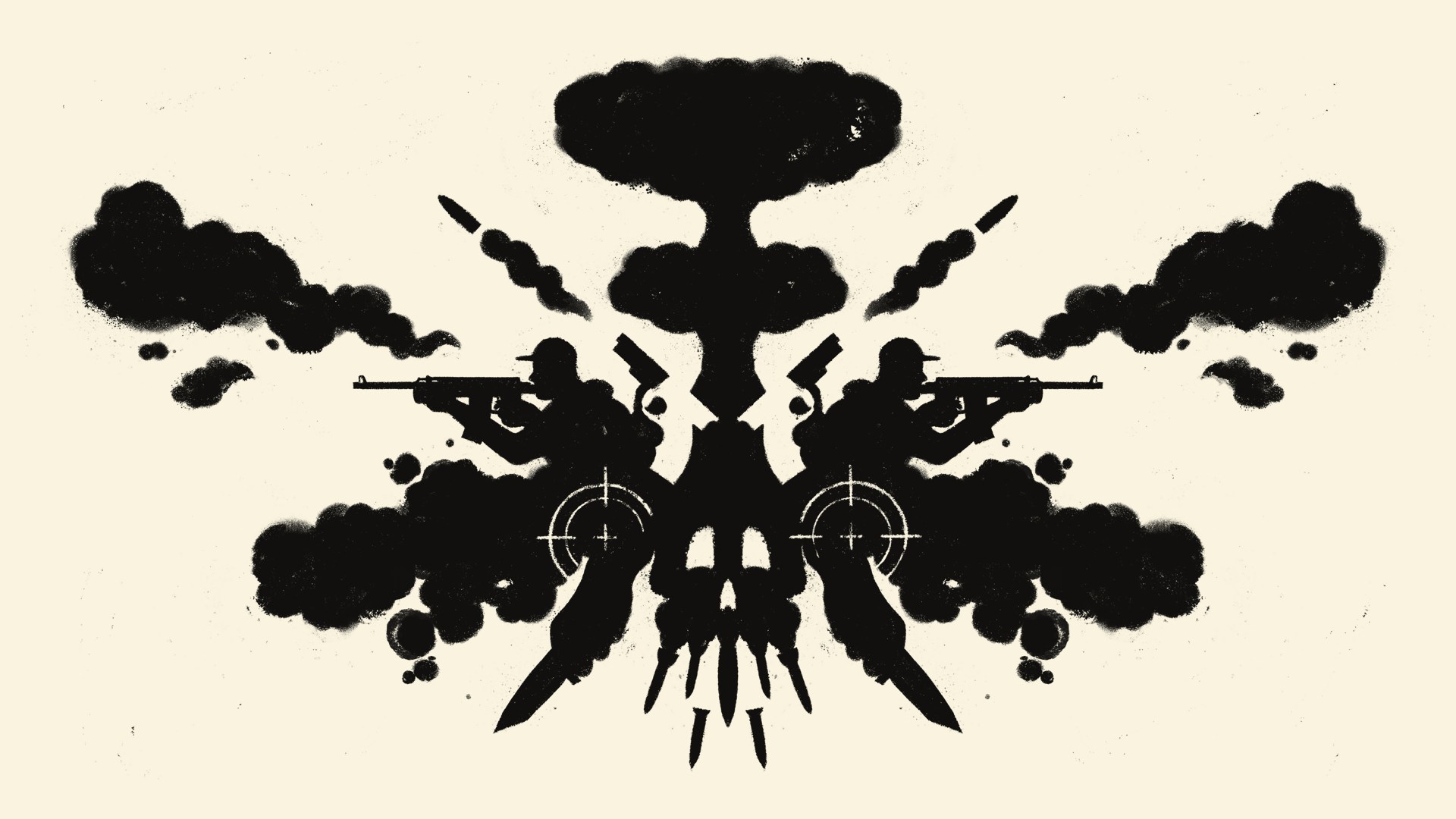This summer we witnessed—again—horrific shootings by enraged gunmen who injured and killed the innocent and unaware. It’s even more worrisome that such events, happening once a week or more, are so common now that we don’t even hear about all of them.
The understandable hue and cry to pin the blame on one or two things is irresistible. Depending on your politics, the cause is Donald Trump or racist nationalists or identity politics or Antifa radicals or the NRA or Hollywood or video game producers—on it goes. It is said that when asked, “What’s wrong with the world?,” G. K. Chesterton replied, “I am.” The same might be said in reply to “What is the cause of our nation’s gun violence?” We are each right to reply, “I am.”
By this, I don’t mean that the cause can be simply identified, or that each of us subconsciously relishes the murder of innocents. Instead, I mean gun violence is that in which we live and move and have our being in America. Or to put it another way: We live in a land of structural gun violence. We have been rightly reminded that racism is not just individual but embedded in institutional structures, that injustice is not just individual acts but also defects in our system. So it is with gun violence: It is woven into the fabric of the American ethos.
America has been habituated to gun violence from its very beginning. Canada managed to administratively negotiate its independence from Britain, but we instinctively reached for our guns and demanded our immediate freedom. Britain managed to end the slave trade and slavery in its empire through legislation. We could imagine no other way than to start shooting at one another.
To be clear: I am not a pacifist and think that violence is sometimes justified. What is interesting to me is the repeated pattern and how quickly and easily we reach for weapons when faced with a crisis.
It’s woven not only into government policy but into the Hollywood industrial complex. It’s a trope to the point of boredom: movies in which a horrific problem is solved by the heroes blowing away the bad guys. I thought we might see a shift when women began playing leading roles in such movies, but we now only model more of the same.
Examples abound to suggest that there is no one culprit or solution. For instance: Not only are guns protected by the Second Amendment, they are also indirectly protected by the First—as long as there is freedom of speech, a large portion of Americans will argue for liberal gun laws. This isn’t about a small cabal of NRA leaders but about what most Americans really want. It’s not just about Hollywood making too many violent movies, but about you and me going regularly to those movies because, in part, we enjoy the satisfaction of seeing malevolent evil getting its just reward.
None of these are the solution and all of them are, all at once. To search for and demand a simplistic and quick solution will, if history is any guide, fail. Simple answers, in fact, often exacerbate the problem. The solution lies at the end of a long and winding road, and we Christians, of all people, should have the patience and hope to take some first steps.
Regarding hope: One example of many would be the Vikings, famous for unrelenting violence as they conquered northern Europe. But as the centuries unfolded, there were cultural transformations that gave Viking leaders economic and political motives to curtail violence. Perhaps most important was their conversion to Christianity, which slowly but surely prompted them to turn their swords into plowshares. But again, this was just one important factor among many and this transformation took centuries of work at all levels of church and society.
Change our leaders? Pass new laws? Transform our media habits? Yes, yes, yes, and more. And not all of our efforts in the public square to address violence will be directly related to weapons.
We also need a conversion of the American psyche, a transformation of the American mind. We don’t just mean the salvation of individual souls—although that wouldn’t hurt. Changing the way Americans think of themselves and how they instinctually react to crises will require cultural transformation at the deepest level. That is something that the church knows about (Rom. 12:1–2) and an arena where we, while encouraging action on many levels, might have some unique gifts to offer.
Mark Galli is editorial director of Christianity Today.
Are we right about this? Off the mark? Share your feedback here.










